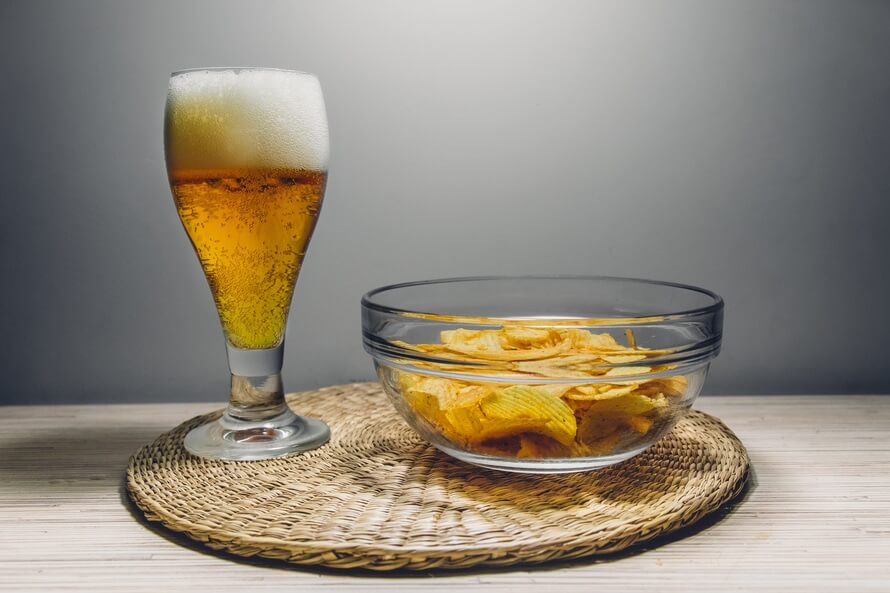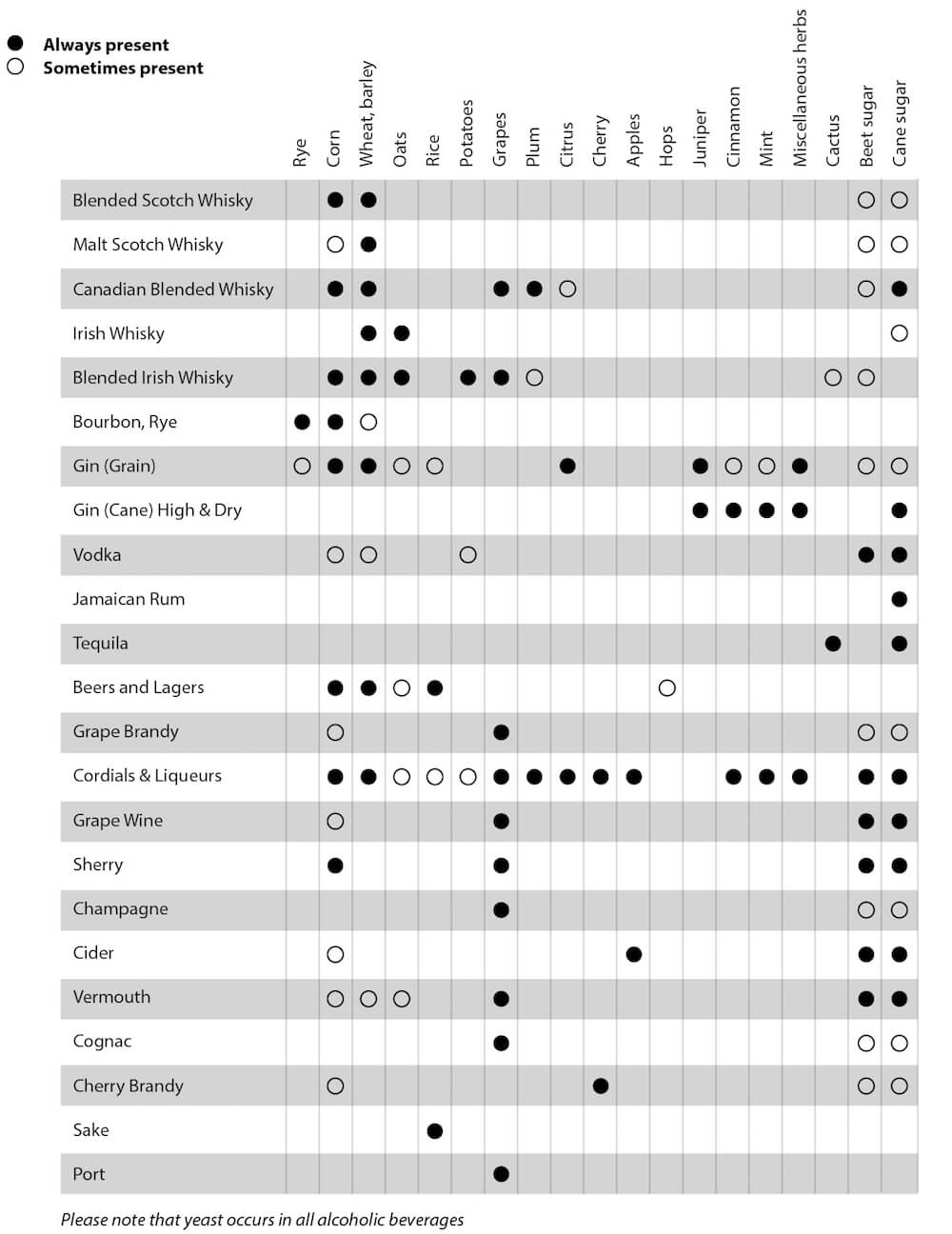What Makes You Drunk But Isn’t Alcohol?
Alcohol and drug abuse can lead to depression and the reverse is also true.
General thought impairment can make it difficult to pinpoint which happens first – the substance abuse or the depression. Removing drugs and alcohol from your life will enable you to think clearly and assess your personal situation without distraction.
I’m currently writing a massive “holistic mental health” encyclopedia that has EVERYTHING to do with mental health and brain function. There is something in this book for everybody, from grumpiness, fatigue, tension and anxiety, to violence, depression, dementia and schizophrenia! ADD/ADHD and autism included!
You’ll see it later in May. Meantime, here’s a section from it…
This comes from one of the seven main sections that I have called my “Suffering Seven”. It’s about alcoholism and food addictions. There is a LOT of learning here. Let me kick you off with something startling, fascinating and almost totally unknown anywhere else in the world…
Most alcoholics are not addicted to alcohol, it’s their food addictions to foodstuff. The alcohol is just a jet-propelled “fix”. Take whisky: it’s made of grains, typically barley or wheat. A whisky addict is probably hooked on the wheat.
How do I know?
Administer a shot of pure alcohol (ethanol) to an alcoholic with severe withdrawal symptoms (delerium tremens or the DTs) and nothing happens! The cravings continue unabated. But administer a subcutaneous shot of wheat extract and the patient calms down, the symptoms lessen or vanish.
I tested and proved this for myself so often in my facility that I am in no doubt about this hidden truth. It makes all the difference to beating alcohol addiction. If you don’t simultaneously ban wheat from the diet, the patient is most unlikely to ever break his or her dependence on whisky.
If you have a problem with drink therefore, I recommend you embark on a full allergy exclusion diet, as part of going on the wagon. You’ll find more success if you do—fewer cravings and an easier withdrawal phase.
Let’s dive into the whole subject of addiction. We’ll look at alcohol first but a whole host of lessons can be learned which apply to other addictions too…

Sunshine In A Bottle
That’s what the Italians call it. Ethyl alcohol (ethanol) is consumed in vast quantities all over the world, indicating just how pleasurable most people find mild degrees of intoxication. There is little doubt that a meal without wine or beer doesn’t have the same warm glow that is so important to easing social tensions. The problem comes when this goes too far; excessive intake impairs your health.
Short-term side-effects of drinking, such as hangover, are said to depend on ‘impurities’, particularly the presence of other alcohols such as butyl and isoamyl alcohol, which are known as congeners. Brandy contains the highest percentage of congeners and this gives it its rich aromatic smell – enhanced by gently warming, which increases vaporization of these secondary alcohols.
Doctors like me gradually uncovered the fact that allergic reactions to foodstuffs contained in intoxicating drinks such as yeast, wheat, corn, sugar and other ingredients are also a major cause of the negative after-effects of drinking.
The great doyen of clinical ecology, Theron Randolph, likened alcoholic beverages to ‘jet propelled food allergy’ and it’s valuable to remember that phrase. Food allergics seem to suffer far worse reactions to drink than the rest of the population; indeed, for years I have regarded this as a fast rule-of-thumb criterion for food allergy. Wheat, for example, may be tolerated in some forms by a wheat-allergic, but when part of a small tot of whisky it can put the patient in bed!
All alcoholic beverages contain yeast by definition. Also, there are many potential ‘additives’ you’d rather not hear about, including sulphites and other antiseptics, “letting down” agents in wine such as ethylene glycol (anti-freeze), asbestos, clay, seaweed, polyvinylpyrrolidine, citric acid, tannic acid, fumaric acid, sorbates, arsenic and monosodium glutamate. This doesn’t mean all drinks include these substances, of course; simply that they may.
The real trouble seems to come from the foodstuffs themselves. For that reason I have reproduced Theron Randolph’s important table of ingredients for most of the common alcoholic beverages. Remember, this is only a guide; individual products vary greatly. This is meant to help you to know what to look for.
The foodstuff is the key to making alcoholic drinks. Brewer’s yeast (Saccharomyces cerevisiae or S. uvarum), need sugars or starch to ferment. Thus high sugar-content foods, such as grapes, other fruits, honey and sugars are chosen for fermentation; or very starchy foods, which will easily turn to sugars that can be fermented (wheat, corn, barley, rice, potato, etc.)
Distilled spirits contain far higher levels of alcohol but still retain sufficient of the characteristic food to impart flavor and, of course, will also transfer any food allergy reaction. Thus a wheat allergic individual will react badly to whiskies, which typical contain malt from wheat or barley.

Certain general observations will also help you make the right choice. Beers and stouts are the worst tolerated of all. Dry cider and dry white wine (including champagne), without contaminants, are the best tolerated. Red wine is usually disastrous since it may contain a hundred times the amount of histamine found in similar white wines. Spirits are surprisingly well taken, but people vary.
Experiment for yourself and be honest about what you find and the limitations this imposes on you.
Alcohol, Food Addictions and Sexual Misbehavior
Over the years I had a number of interesting cases where a food allergy reaction provoked unseemly behavior in a patient; women in particular. One woman behaved very inappropriately in a coffee challenge test; another it was ice cream.
These were older ladies and could look after themselves in the main. But I am concerned for teenage girls and younger women: this effect needs to be more widely known. One lady clearly reacted badly to vodka and orange. She got drunk quickly, got up on the table and started taking her clothes off… on more than one occasion.
Surprisingly, it wasn’t the vodka that made her tipsy; it was an allergy to the orange! You see, food allergy has the same excitatory then suppressor effect on the brain as alcohol does—both are poisons. At first it shuts down the inhibitory center, which is why people get frisky and misbehave. Then as the poisoning gets worse the whole brain shuts down and lying under the table fast asleep is a common ending!
In another case it was definitely the vodka. The young patient was smart and suspected as much; vodka tended to make her lewd and suggestive. So in 1987 I carried out a double-blind experiment. Sadly I have lost the recording of that day or, more exactly, my first wife wiped the tape, but the shoot was certainly memorable.
I gave the patient 10 microshots: 6 were saline blanks and four were as follows: whisky (barley malt), gin (wheat), vodka (corn) and brandy (grape), all randomly mixed and without visual clues (blind). With camera running, we recorded her reactions. On the fourth injection, she became very giggly and claimed she was going to whip the trousers off the cameraman. Another of the shots made her very depressed. And one made her talkative and cheerful, but without being suggestive or aroused.
When we broke the code, sure enough: the fourth shot was the vodka. She was right. I warned her off it, of course. The one that made her depressed was gin and I warned her off that too. Whisky was the best drink for her (if she wanted spirits).
Looking back there was an ethical issue here, which was overlooked in my enthusiastic research. Moreover there was a negative outcome. With her permission we released the findings to the press, as a dire warning to other young women, to figure out the foodstuffs in their alcoholic drinks. But for years afterwards fools and miscreants would try spiking her drinks with vodka. The man she eventually married was very angry with me and I don’t blame him.
Enjoy your tipple and beware the real issues (not quantity, eh?)
